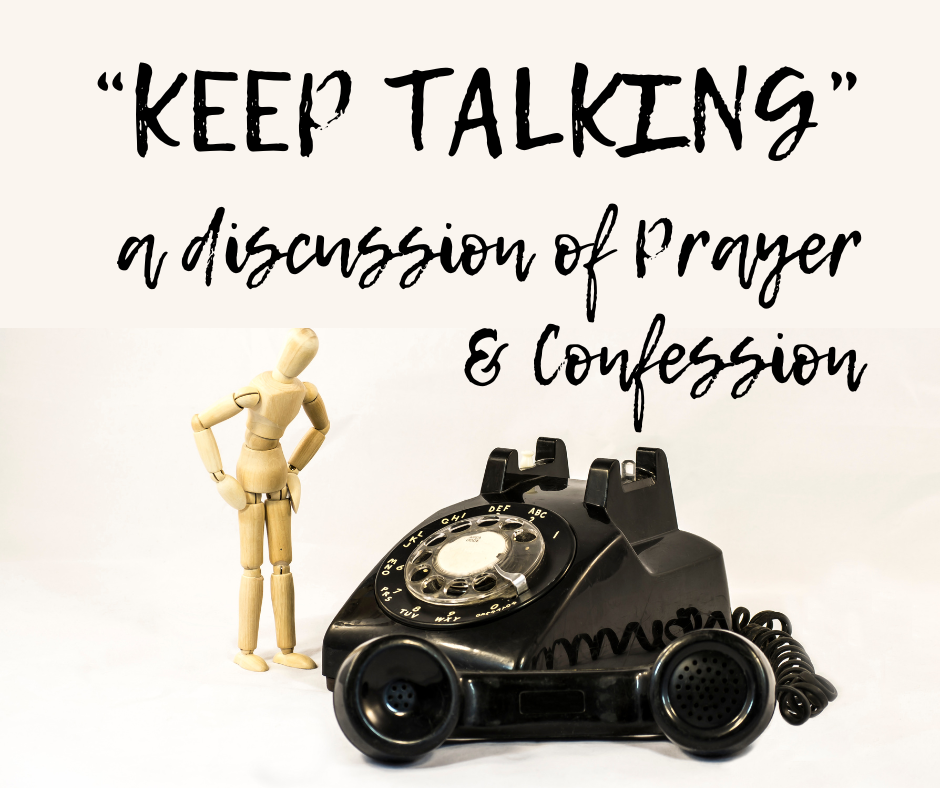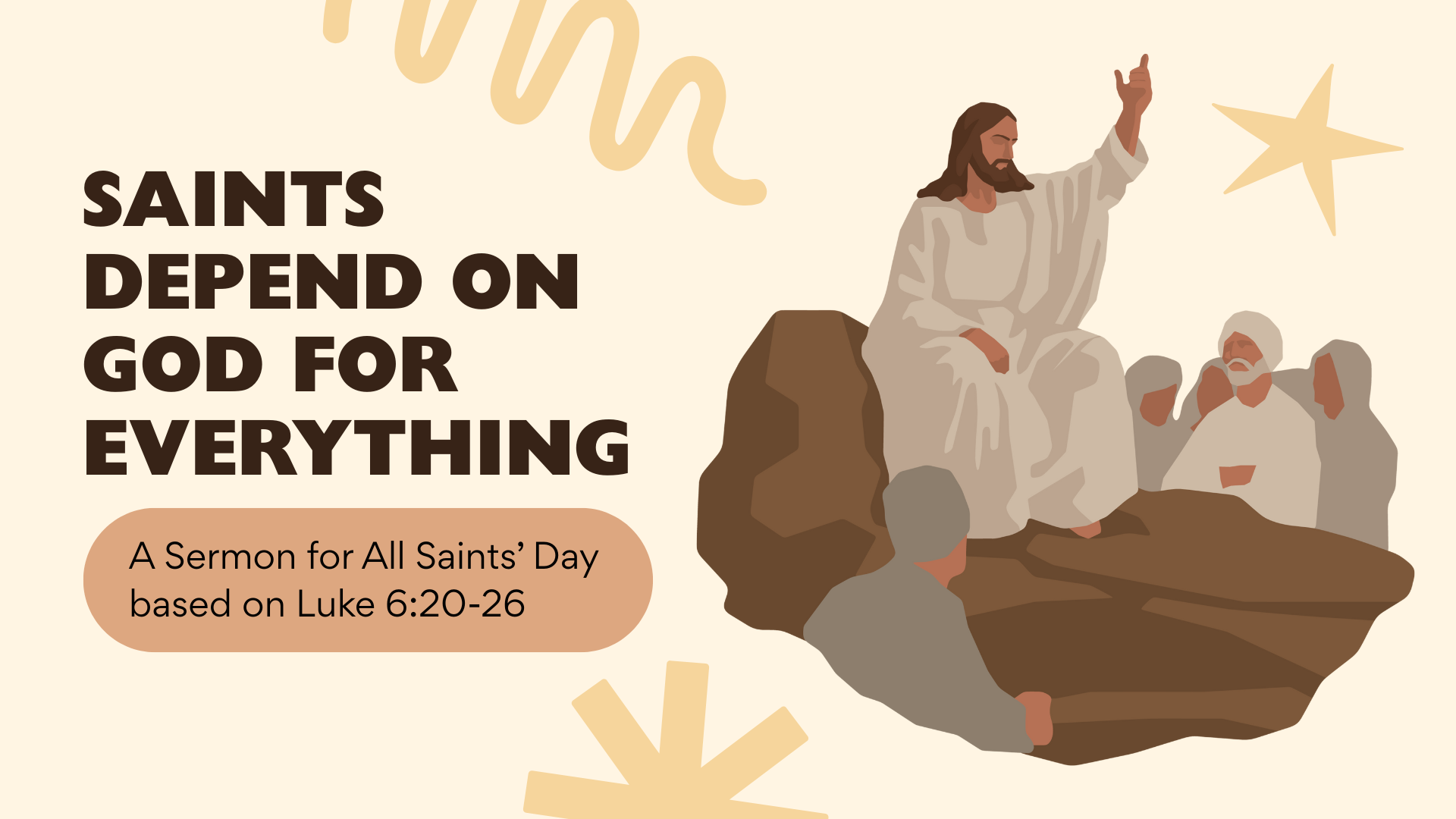“Keep Talking” (A Discussion of Prayer & Confession)

I have a friend who likes to talk on the phone. Many times, he responds to a text with a phone call. Many times, he calls out of the blue, saying, “I just wanted to see how you’re doing.” The conversation that follows is sometimes short, sometimes long, but always delightful. Rarely do we have important information to share with each other, but his desire to chat and shoot the breeze with me shows me where I stand. It’s his way of showing what kind of friendship we have.
Not everyone is the same way. Not every friendship needs constant communication to thrive. Some friends are as close as ever, sending each other memes on Instagram all day long, with hardly a word about their personal lives. Others can drop an email update here and there, and still feel like the best of friends. The way “close communication” looks will vary from person to person, but in any relationship it has to be there.
The applications to prayer are fairly obvious. Recently, I began a bible study on the topic of prayer by asking each participant to describe what it is. Not surprisingly, each answer had something to do with conversing with God. Wouldn’t you have said something similar? It is widely understood that prayer is as simple as speaking to God.
When Jesus taught his disciples to pray, this is exactly the way he described it. He said, “When you pray, say: Father…” (Luke 11:2). Open up the chat and start typing. Dial the phone and start calling. To begin to pray is as simple as beginning to speak to a friend. And when you do, you can address God as your “Father.”
This sounds so basic and familiar to Christians and non-Christians alike that the significance behind Jesus’ instruction can be lost. The Bible shows that our sins have separated us from God (Isaiah 59:2). Our natural, default stance toward God is nothing close to the warmth and friendliness that Jesus implies in Luke 11. When it comes to God, our sinful nature defaults to hostility (Romans 8:7-8).
So then, how do so many people get it in their heads that we have the right to talk to God? Clearly something has changed. In Romans 8, Paul chronicles the journey we have taken from being God’s adversaries to his friends, from enemies of God to his children. It is because God has set us free from our sin that he has also set us free from our own hostility toward him. God has ended the separation between us and him through Christ (Romans 8:1-4). He sends his Spirit into our hearts to bring us into this beautiful relationship (Romans 8:9-11). This relationship is expressed by our actions of thanksgiving for what Christ has done (Romans 8:12-13), and by our crying out to God for help and mercy (Romans 8:14-17).
We have the right to pray, to talk to God, expressing our needs, our desires, our anxieties, and our sorrows, because we now stand in a beautiful relationship of grace thanks to Jesus. Without this faith relationship with God, the separation our sins created would remain. Without Christ’s righteousness covering over us through faith (Galatians 3:26-27), we would not have the right to address God as anything but our Judge. That is why, without faith, it is impossible to please God (Hebrews 11:6), and therefore impossible for the unbelieving heart’s prayers to be heard. But through this faith which is God’s gift to us (Ephesians 2:8), we pray confidently, knowing that for Christ’s sake, God hears us (1 John 5:13-14), and he will answer our prayers according to his gracious will (1 John 5:15).
While it’s true that God doesn’t necessarily give us exactly what we ask for, he does answer each prayer. He may determine that what we ask for is not what’s best for us (2 Corinthians 9:7-9). He may seem to delay in giving us what we ask for, because of his superior timing and wisdom (1 Samuel 1:3-20). Or he may give us exactly what we request (James 5:17-18).
This is why “talking to God” is still a great definition of what prayer is. Yes, we are invited to sincerely talk to God about our hopes and wants. And as we do, we are expressing what we believe about God. It’s not too far a stretch of logic to say that if you call upon God’s name in your troubles (Psalm 91:15), that means you believe he will help you in your troubles. Nor is it out of line to assume that if you pray to God for your daily bread (Luke 11:3), you’re saying that you believe he is the one that provides for your needs (Psalm 145:15-16). Each prayer that you pray is, at its core, an expression of your faith-relationship with him – an expression of what you believe God can do, and who you believe God is.
This is also why we have the ability to do something else that, when you think about it, is completely ridiculous. God hates sin. We’ve discussed this in previous devotions. God is holy and pure and cannot abide our natural unholiness and impurity. Yet Jesus commands that our prayers should include confessing our sins (Luke 11:4). If God were only just and angered by sin, this would be a trap! It would be as if Jesus were commanding us to call our local judge and confess to crimes we’ve committed, sending ourselves to prison!
Thankfully, God is not only just, but he is also gracious. He solved our sin-problem for us through Jesus. He has established a relationship of love with us through Christ, and part of that relationship is the continual forgiveness for our sins Jesus affords (1 John 2:1-2).
What a miraculous change, that we can bring the sins we’ve committed against God straight to God! Not only so, but we have the promise that he hears every confession and responds with merciful forgiveness for Christ’s sake (1 John 1:8-10)! God invites us into such a relationship of honesty, openness, and acceptance, that we are free to admit our deepest, darkest secrets to him, and trust in his forgiveness! We want to continue to confess our sins to God in our prayers, always remembering that we stand in the grace of Christ.
For a beautiful example of using God’s gift of prayer to confess deep and dark sin, read Psalm 51. In the first six verses, David expresses the full extent of the problem, essentially saying, “I am all wrong, and I have done wrong. I don’t even deserve to be praying to you right now, God!” But in the next verses (Psalm 51:7-12), he finds shelter in the merciful character of God. David trusts that God forgives him, because of the kind of God he is. Finally, (Psalm 51:13-19) David makes a plan to respond to God’s love by sharing the news of it with others, and by going to worship and praising God’s name with other believers. This is why we sometimes speak of confession, or “repentance” as a three step process: 1) opening up to God with a humble and “all-cards-out” diagnosis of our sin problem, 2) seeking refuge in God’s forgiveness and trusting in his love, and 3) making a plan to go forward in that love, showing our thankfulness to God for his forgiveness. Number 3 can include attempting to right whatever wrongs we confessed in number 1, as Zacchaeus did when he repented of his sins (Luke 19:8).
We have the right to confess our sins directly to God, but doing so out loud to one another is of great benefit (James 5:16). It can be hard to say a silent prayer of confession on your own and trust that you’re forgiven after you’ve said “amen.” This shows the wisdom and grace of God in giving us the privilege to pronounce forgiveness to one another (John 20:22-23). We become mouth-pieces of Christ himself whenever we have the opportunity to speak the tremendous comfort of sins forgiven (2 Corinthians 5:20). So, while confessing sins to a church leader or fellow Christian is not a new law, it is encouraged throughout the New Testament as a blessing to make use of, to give a brother or sister in Christ the chance to pronounce that beautiful forgiveness to you. This is also why each of our worship services begins with a group confession of sins and pronouncement of forgiveness (called “absolution”).
Above all, it’s about expressing what kind of relationship we believe to have with God. We believe in a God who listens (Proverbs 15:29). So, speak to him often! We believe in a God who answers prayer. So, present your requests to him (Philippians 4:6)! We believe in a God who is merciful, who forgives. So, confess your sins to him freely (1 John 1:9)! We believe in a God who gives us brothers and sisters to be his conduits of love to one another (Ephesians 4:11-13, James 5:16). So, make use of these gifts by talking about your sins to a brother or sister you trust!
In your relationship with God, be like my friend. Let your love for God and the confidence in what you know to be true about him resonate in frequent prayer.
Have more thoughts and questions about prayer and confession? Let us know by contacting us! Or join us for Bible Class any Sunday at 9am, and/or our worship service full of prayer and praise to God at 10:15am. God bless you!
Pastor Mike Cherney







